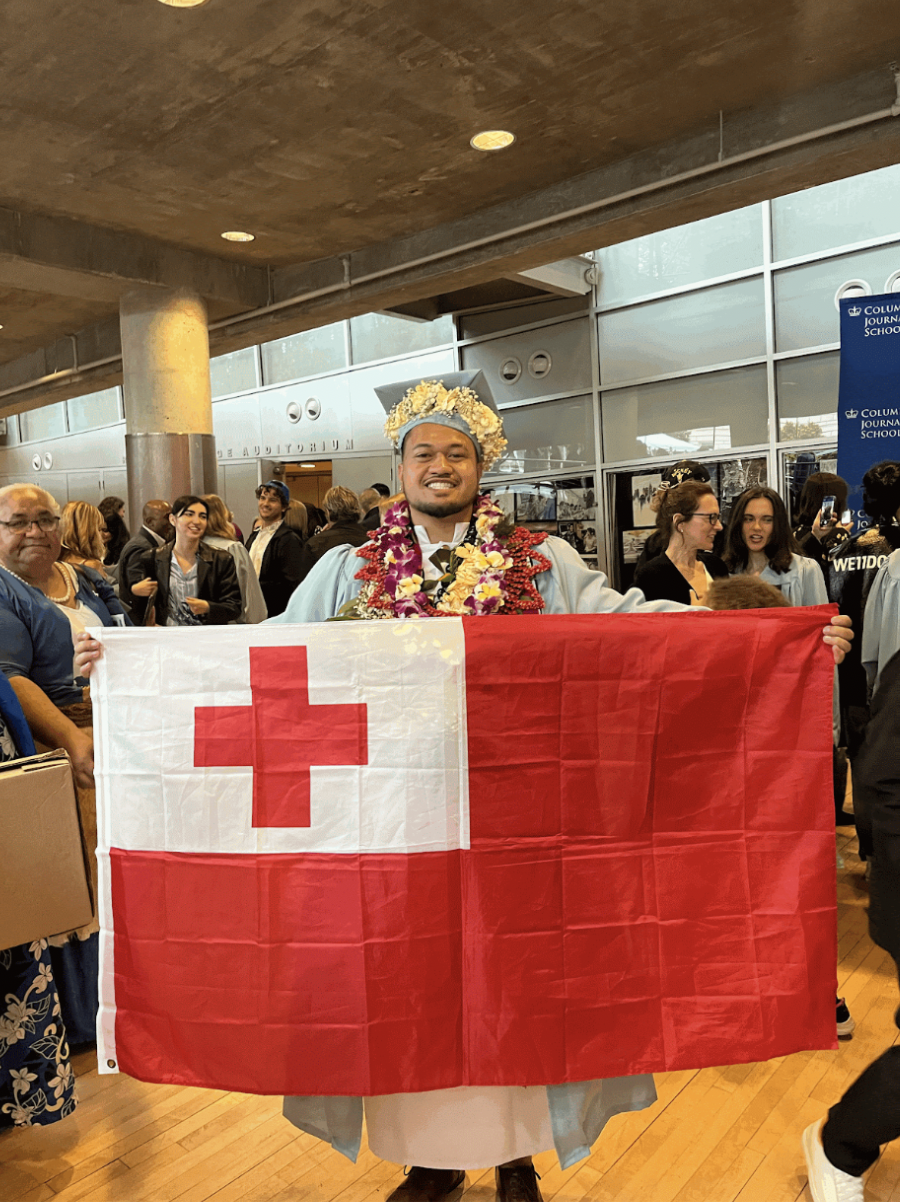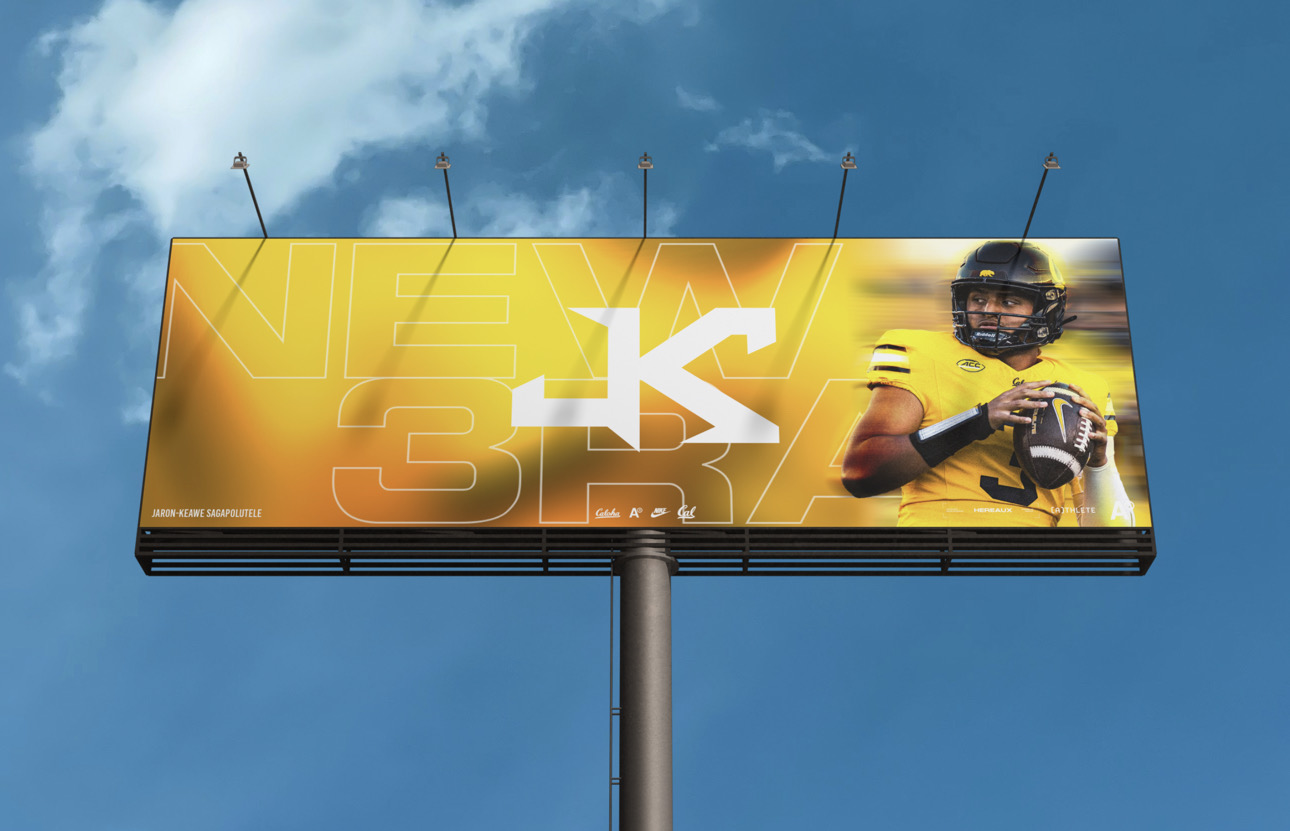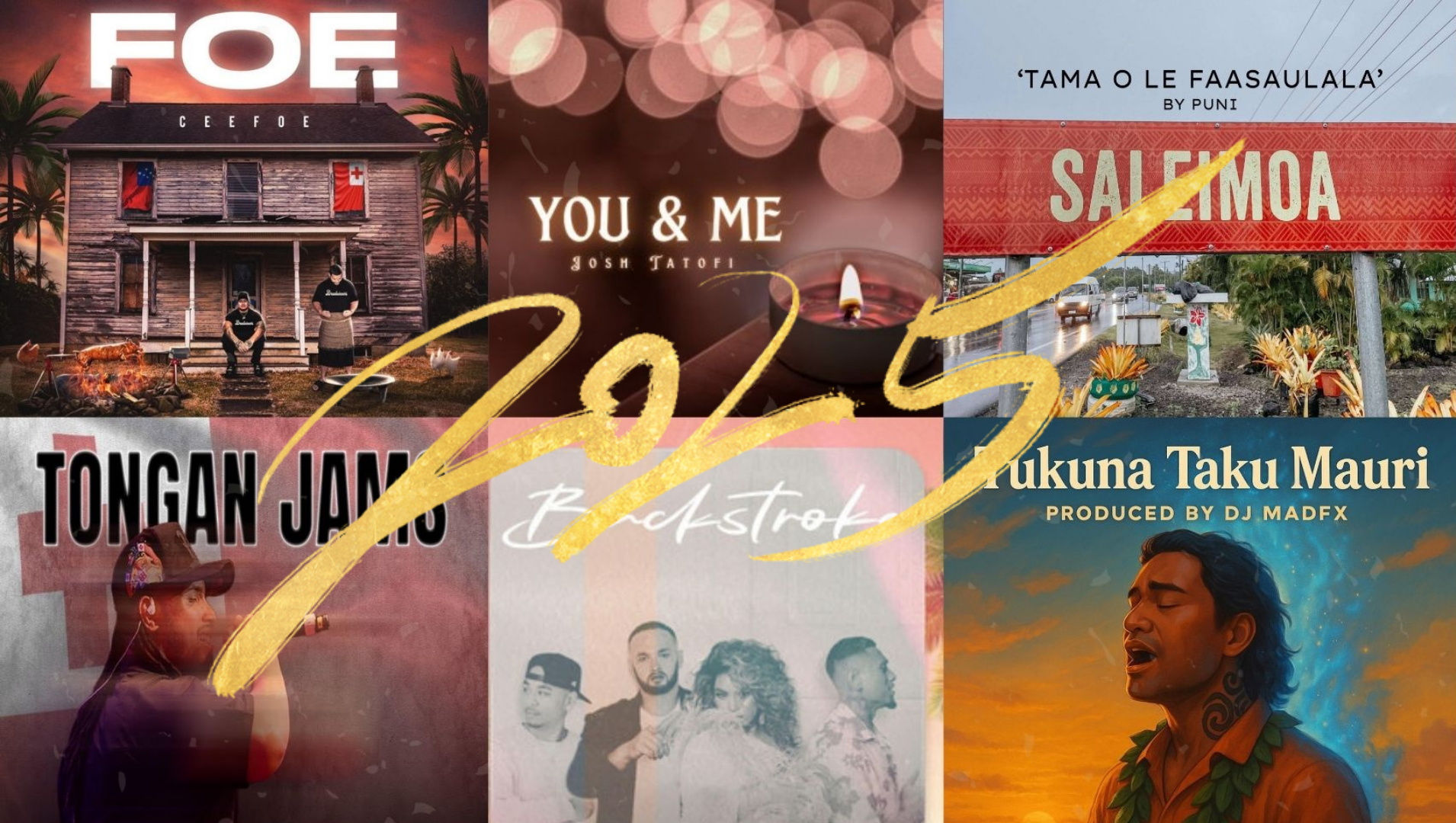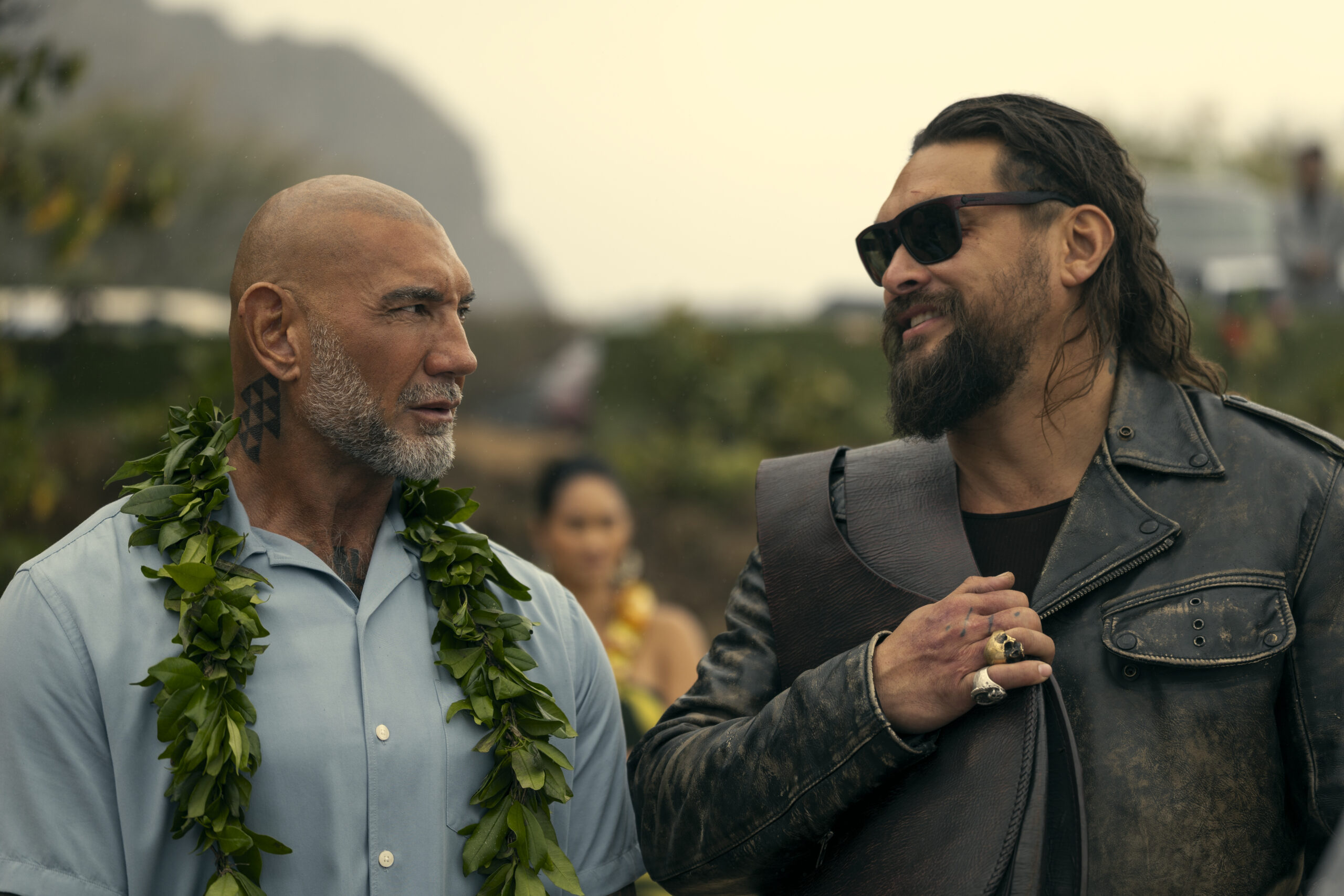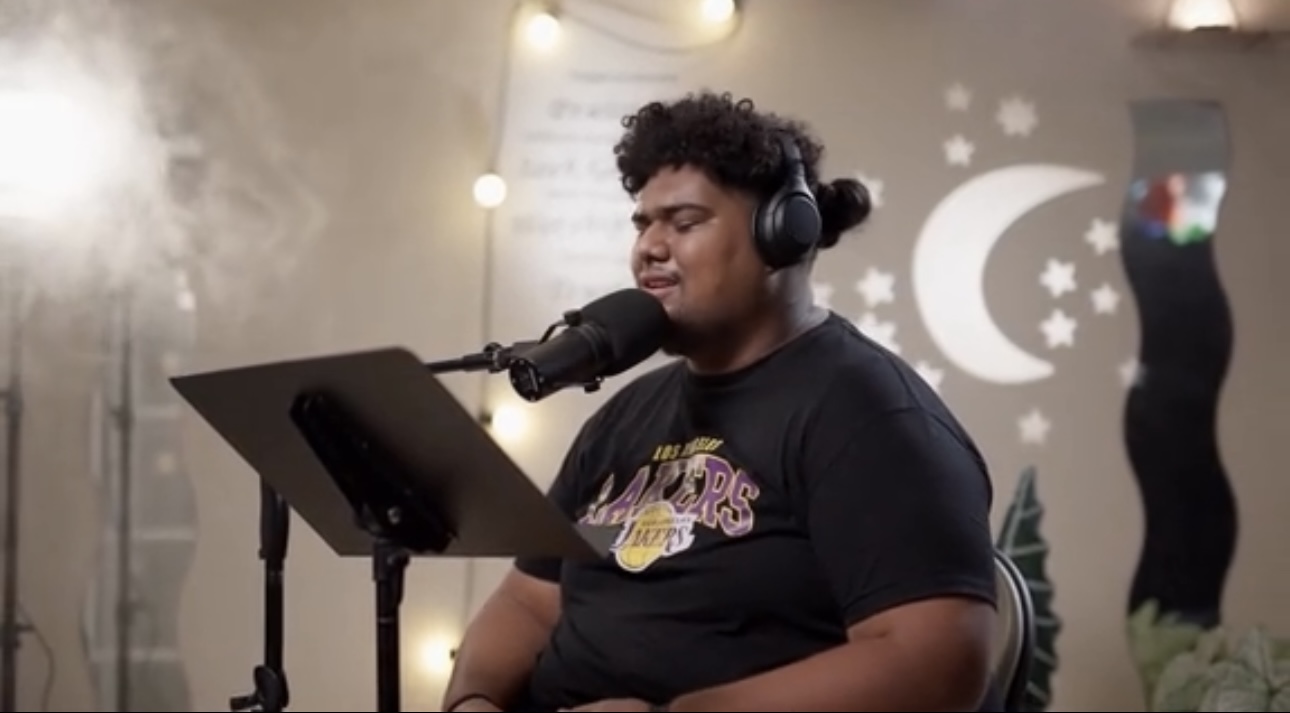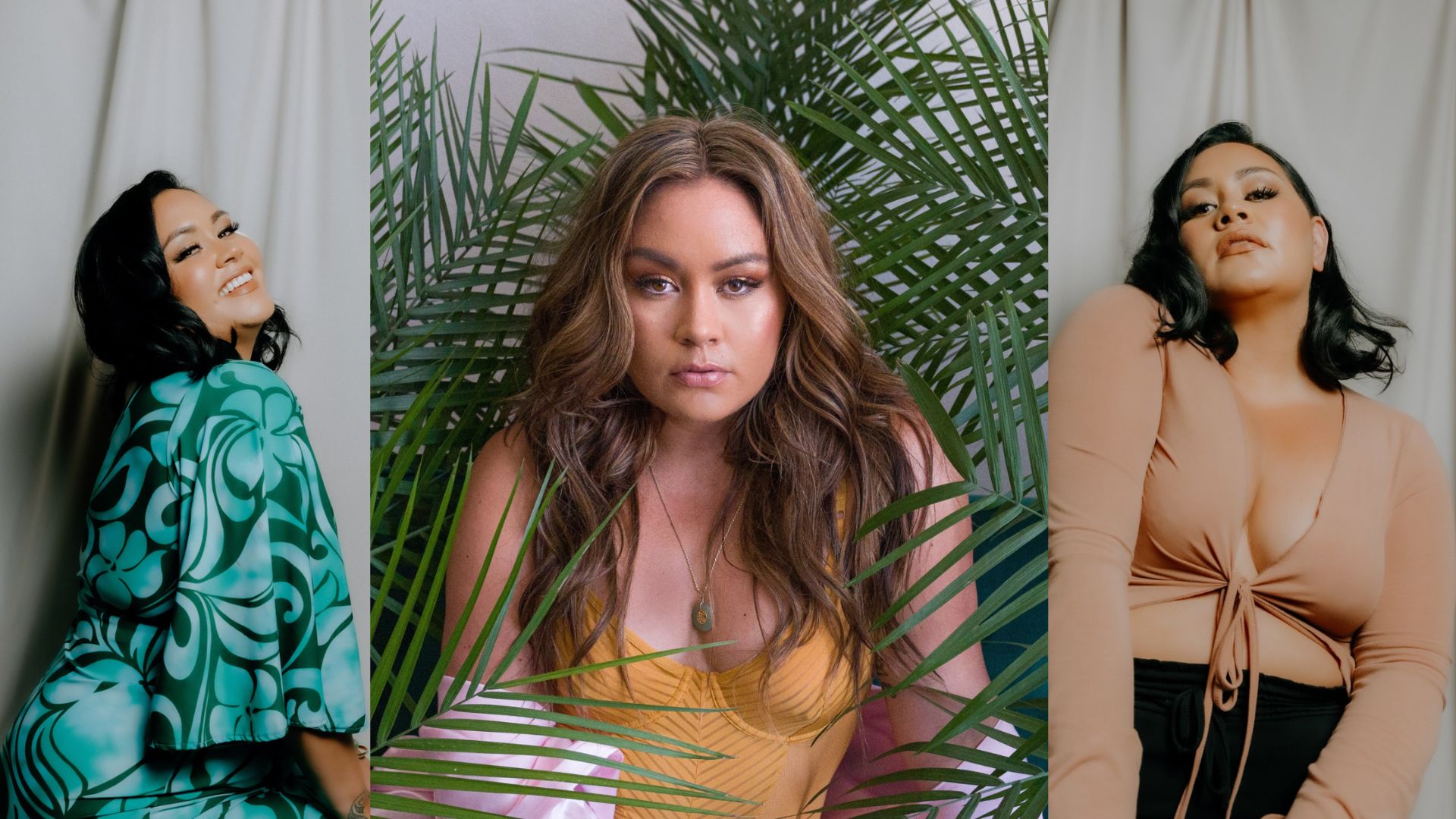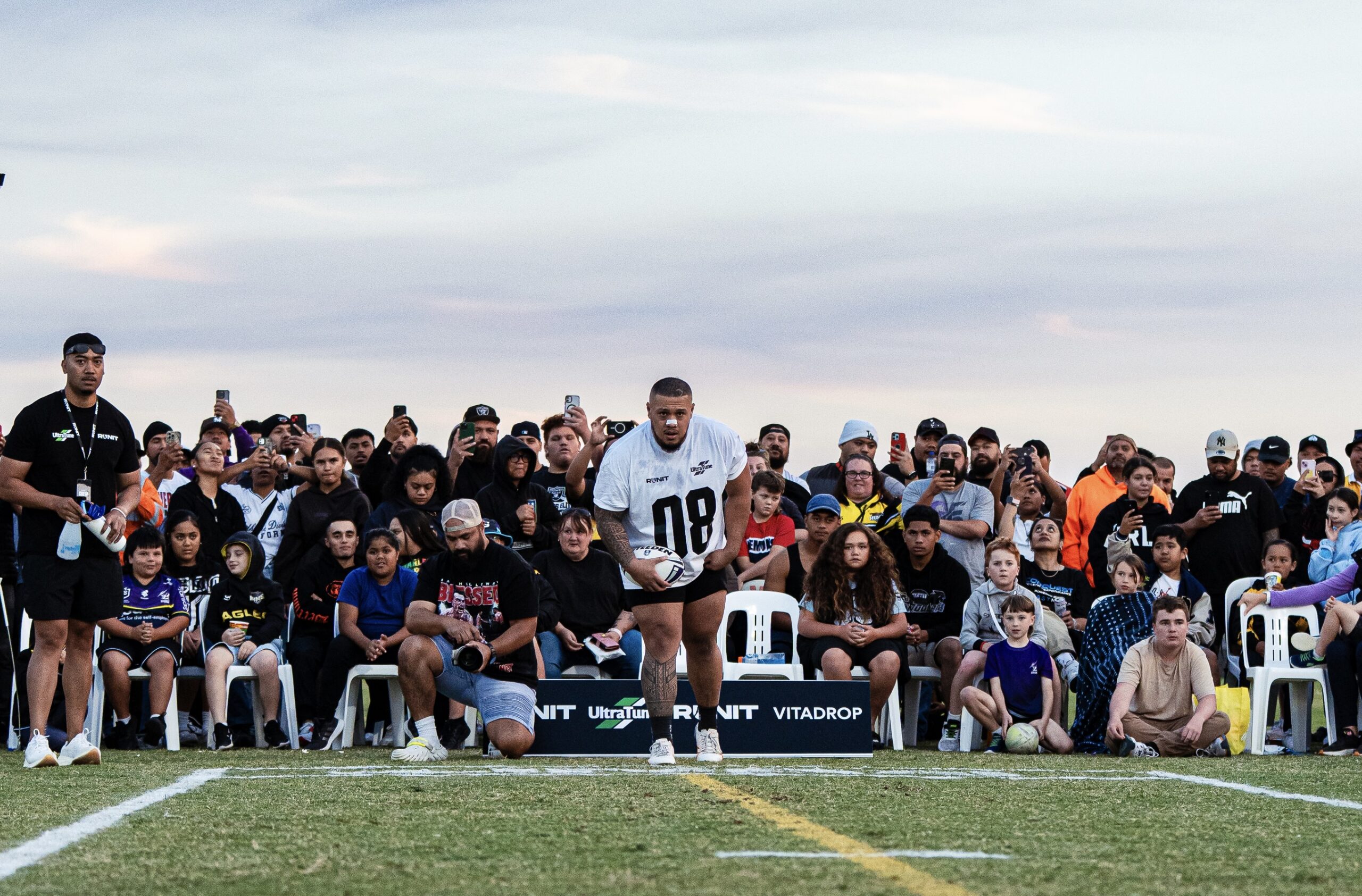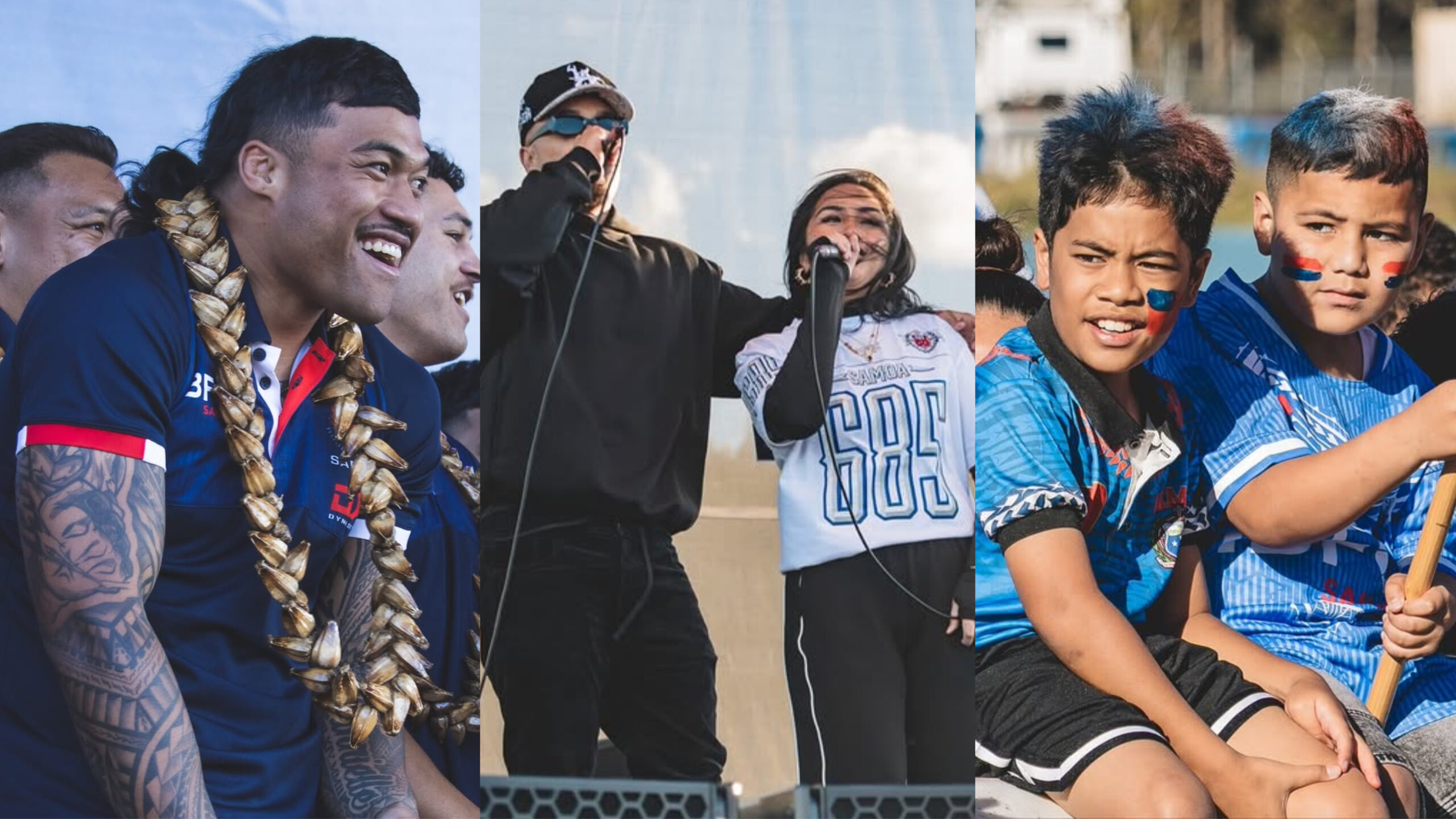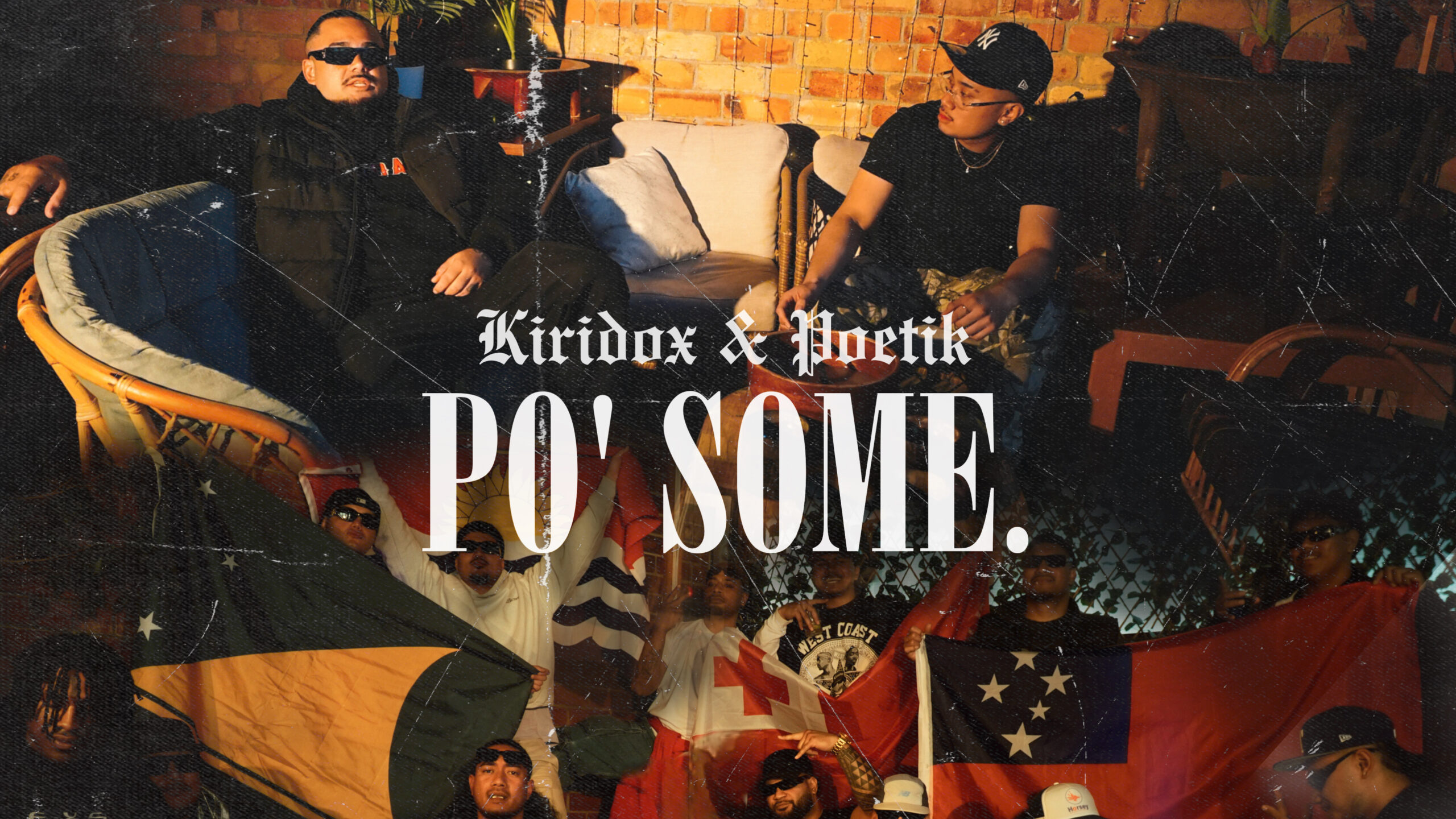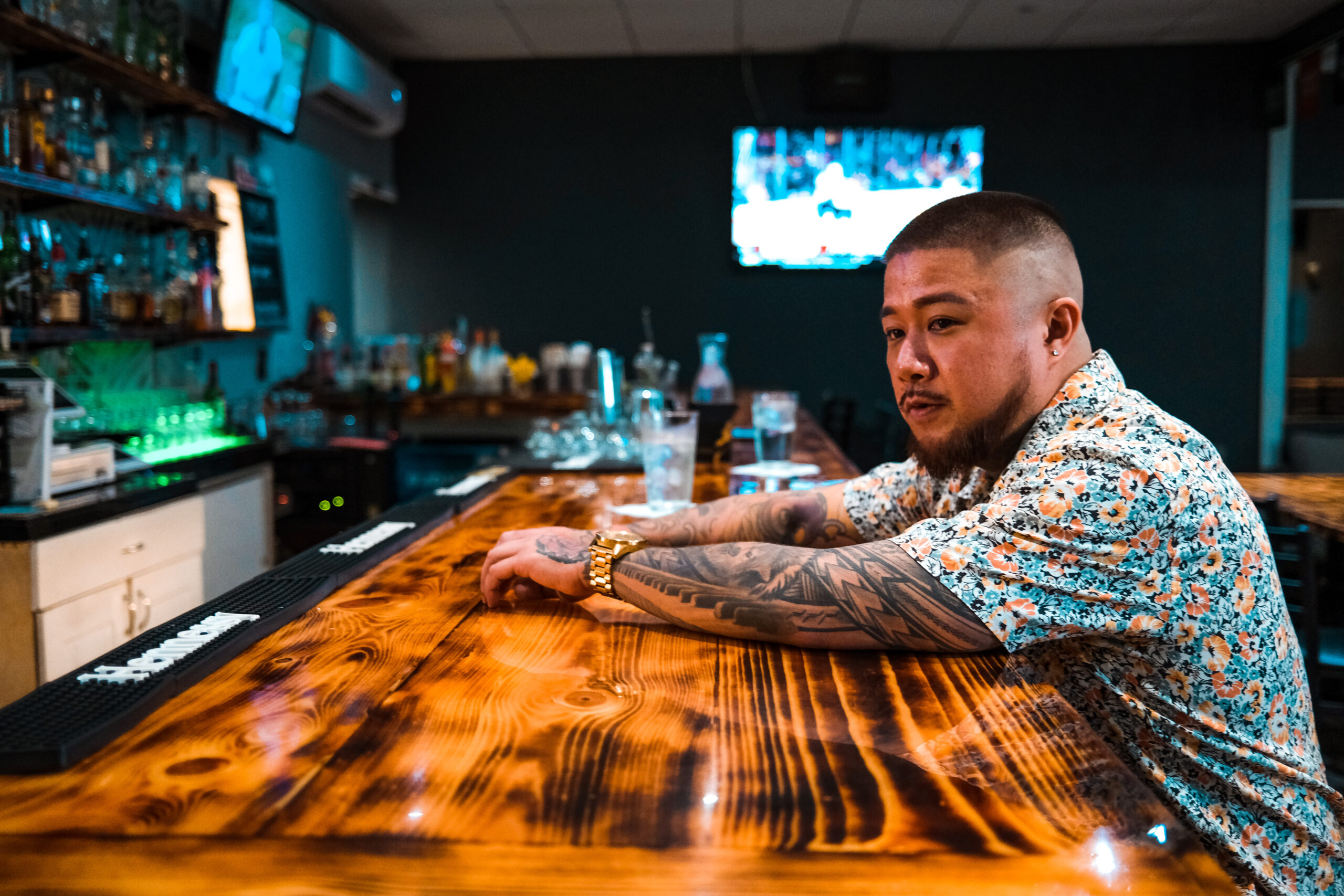Breaking barriers in one of the world’s most prestigious academic arenas, Okilani Veatupu Hautau, a proud Tongan and first-generation college graduate earned his Bachelor of Arts in Sociology from Columbia University, an Ivy League institution. His decision to walk away from Division I football to fully embrace academics marked a powerful shift toward purpose and advocacy. In this Q&A, Okilani reflects on his journey navigating Columbia as a Pacific Islander, the challenges he faced, and the legacy he hopes to build for those coming after him.
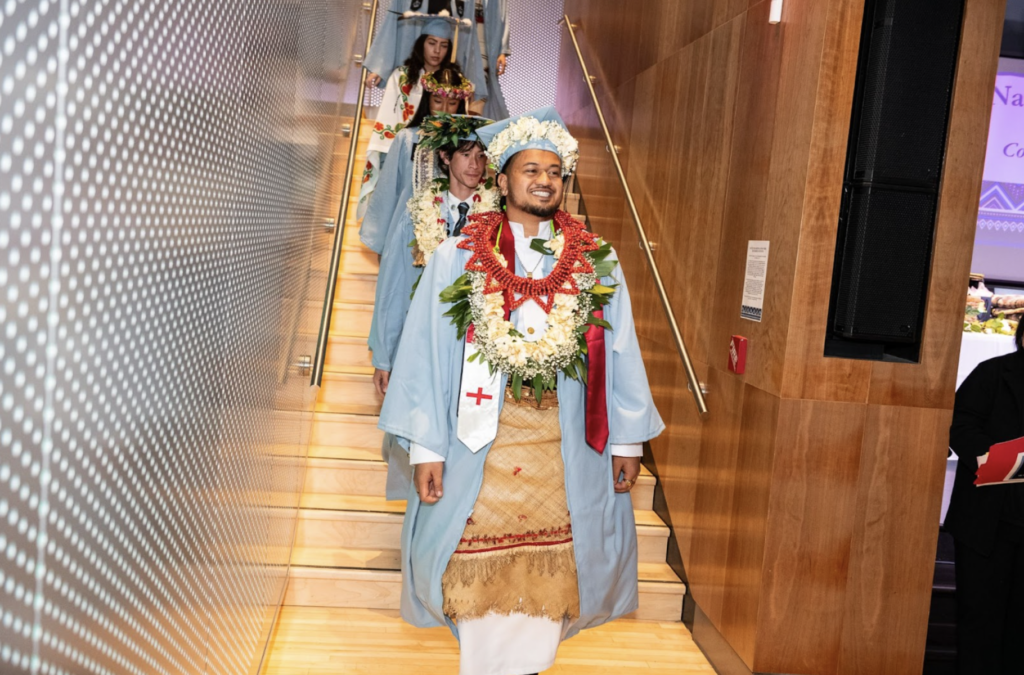
1. Full Name:
Okilani Veatupu Hautau
2. Where are you from?
(Please share your village(s), island(s), or roots and any identity you carry proudly.)
Tonga – Uiha Ha’apai, Taoa Vava’u, Ahau Kolovai, Holonga Tongatapu, Alakifonua Pelehake.
3. What degree did you earn?
Bachelors of Arts (B.A.)
4. What was your major/minor and what inspired you to choose that field of study?
I majored in Sociology because I’ve always been curious about how identities, institutions, and social systems interact—especially for underrepresented communities like mine. I wanted to understand how our realities are shaped by race, class, culture, and power so I could help create spaces that are more inclusive and just.
5. Can you share a little bit about your upbringing and how that shaped your dreams and path toward higher education? What made you choose Colombia?
I grew up in a tight-knit Tongan household in California as the youngest of six and a proud first-generation student. Education was a shared dream carried on the backs of my parents, who came to the U.S. in search of better opportunities. Their sacrifices taught me to work hard, but also to lead with heart. I came to Columbia University for football, but after my first season—and a lot of deliberation–I made the decision to step away and focus fully on being a student. Letting go of the sport wasn’t easy, but I knew my purpose extended beyond the field. Even though football didn’t work out, I stayed because I saw the value of pushing through. Being in this space, as hard as it was, opened doors I never imagined–for myself, and for the communities I represent.
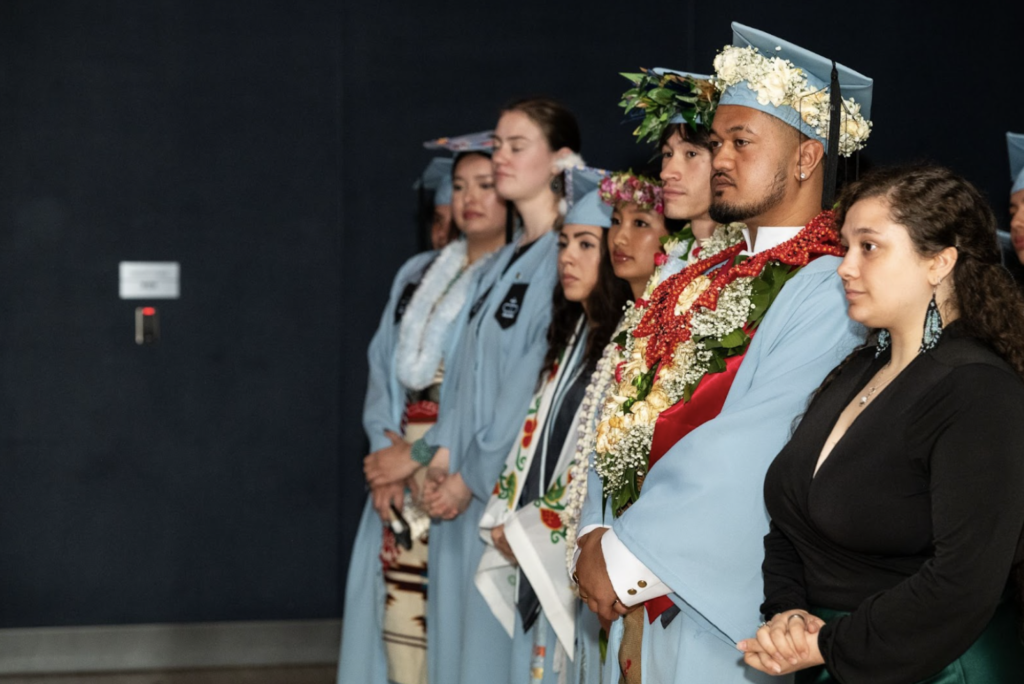
6. How did it feel walking across the stage, wearing your full Tongan attire and representing your people, your family, your village at Columbia’s graduation ceremony?
It was powerful. Wearing my Tauvala, lei haku, Kahoa Heilala, and a traditional Tongan Tupenu, I didn’t just walk for myself— I walked for my ancestors, for my late brother Ofa, for my family, and for every Pacific Islander who’s ever felt invisible in Predominantly White Institutions (PWI’s). That moment made our presence undeniable. It was a quiet but bold reminder that we belong here too.
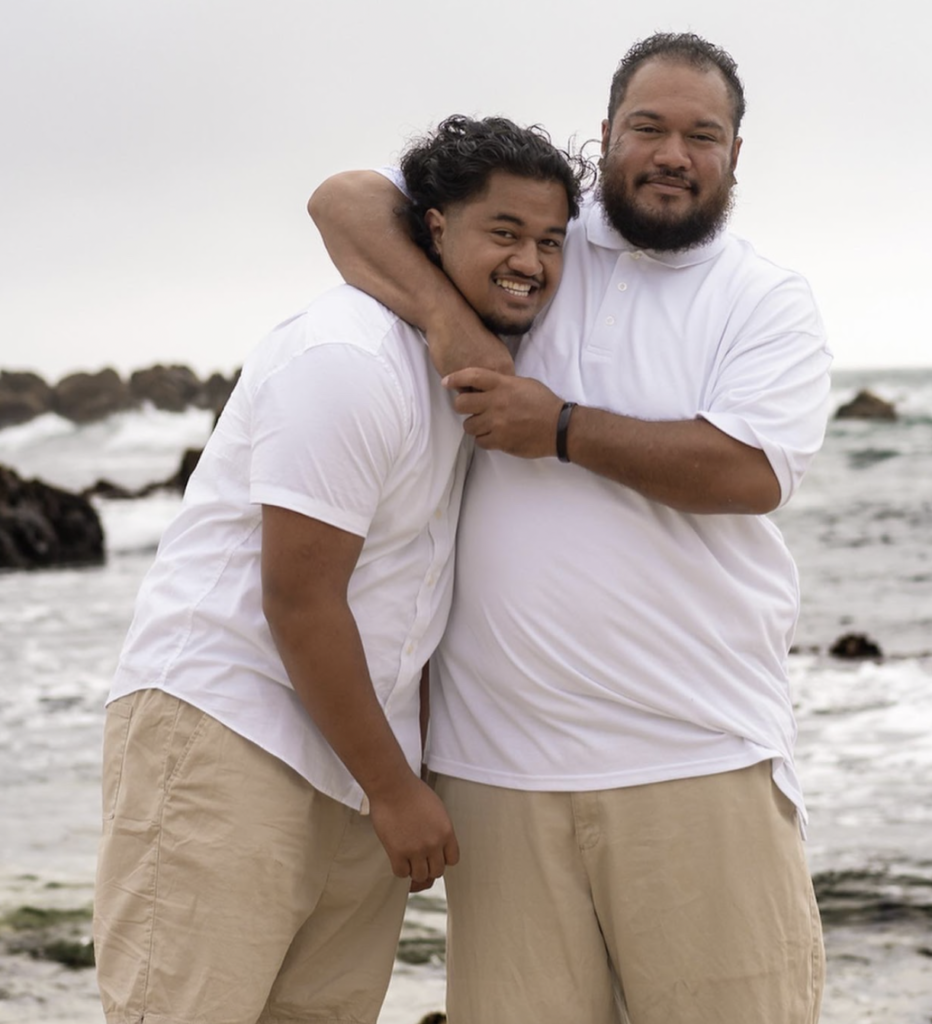
7. You gave a speech alongside a Native Hawaiian student on the challenges Pacific Islanders face in predominantly white institutions, can you share what that moment meant to you, and what messages you hoped to leave behind?
That moment was sacred and I will hold on to that memory for the rest of my life. To speak truth into a space not made for us, in our cultural wear, alongside another Indigenous student, Noah Kuikamanakahiau Lyman—it was an act of reclaiming space. We wanted to shed light on our erasure, but also our resilience. Even in spaces that were not made for us, we carry stories and cultures that deserve to be heard and represented.
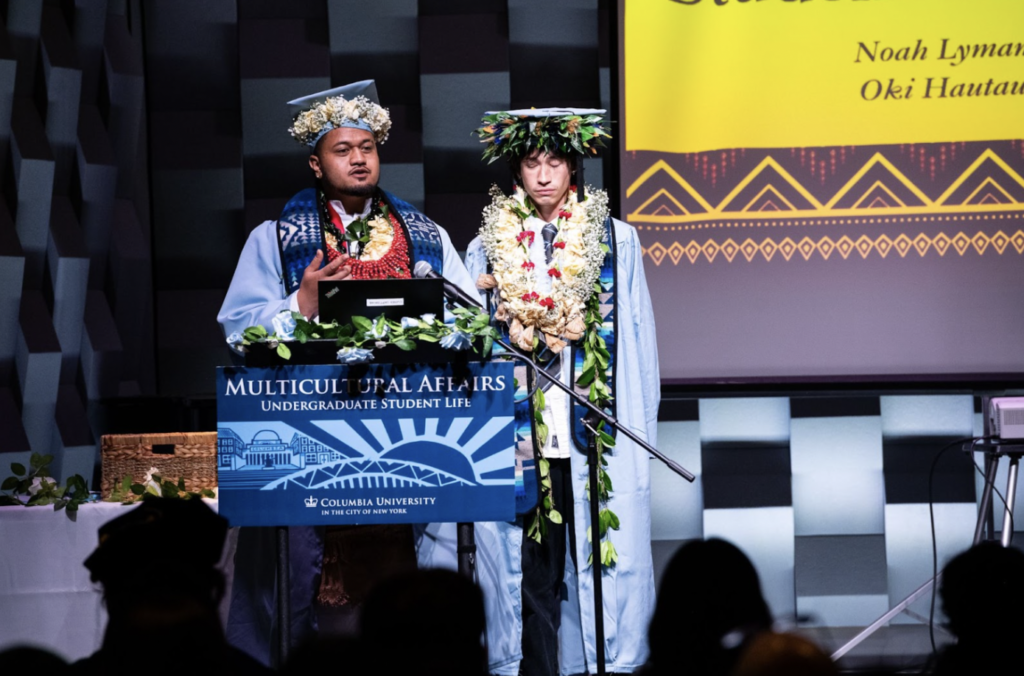
8. What were some of the biggest challenges you faced throughout your academic journey, especially as a Pacific Islander navigating an Ivy League space?
Honestly, the feeling of isolation was real. I often felt like I was navigating two worlds: Columbia’s elite culture and my community’s grounded values. There were times I was the only Pacific Islander (PI) in the room, expected by others to represent an entire community of people while still trying to survive the workload. Imposter syndrome crept in, but so did a strong sense of purpose.
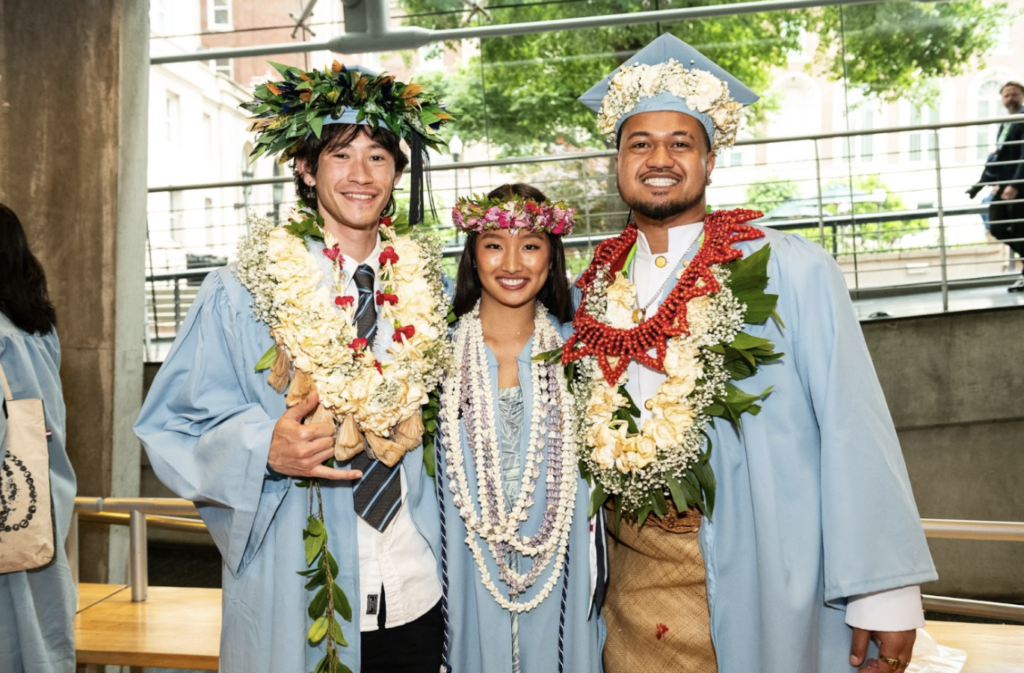
9. Were there moments you ever questioned your place there? How did you push through?
Absolutely. After my older brother passed away my sophomore year Spring semester, I hit one of my lowest points in my life. I questioned whether I belonged at Columbia or even wanted to return. But I leaned on God for strength, on my family for love, and on Indigehouse—the Indigenous student community I lived in—for support. In the end, I knew I didn’t come this far just for me—I came for everyone who never got a chance.
10. Who or what kept you grounded during your time at Columbia?
What kept me grounded most was my faith in God, and the unwavering love and support of my family and community. I carried their love with me every day—especially the memory of my late brother, Ofa. His presence and strength helped me get to where I am today. I also drew deep inspiration from my aunty, Dr. Halahingoa Rohorua. She’s been one of my biggest role models—not only because she navigated high-level academia, but because she led by example. As a kid, she didn’t just tell me I could succeed—she showed me that we, as Pacific Islanders, can thrive in these spaces and that we truly do belong.
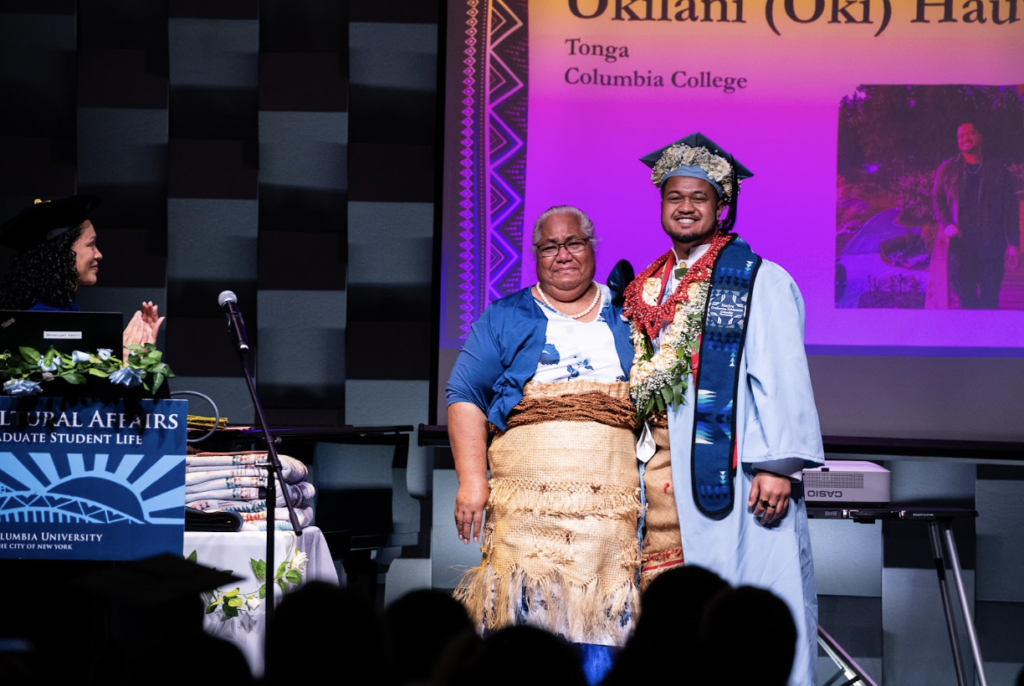
11. What does it mean to you to be a Pacific Islander in these elite spaces, spaces not built for us and not just to survive, but to thrive?
It means the world to me that God blessed me with this opportunity. Being a Pacific Islander in elite academic spaces is more than personal achievement—it’s about reclaiming space and giving voice to communities that have historically been overlooked. At the same time, the journey comes with real challenges. Being underrepresented meant I was often tokenized, mistaken for being Hawaiian or Samoan, and constantly put in the position of having to explain who I am and where I come from. It was emotionally taxing to carry the weight of representation while navigating such a demanding environment. But I learned that thriving in these spaces doesn’t mean conforming—it means showing up fully in our truth. One of the most powerful parts of being here was the chance to connect with people from all over the world, each with their own stories and identities. As a Pacific Islander, I brought with me the values of collectivity, humility, and resilience—values that not only grounded me, but also offered something vital to spaces where they’ve long been missing.
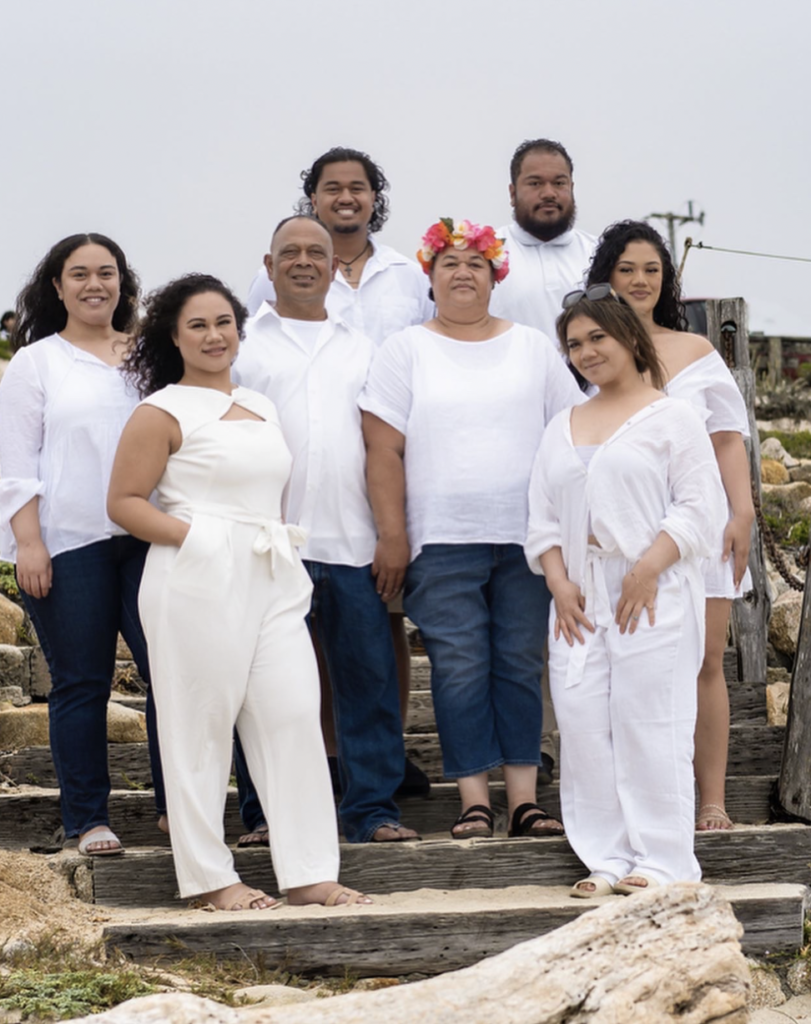
12. What advice would you give to other young Pacific Islanders who may be dreaming of spaces like Columbia/Ivy League schools, but feel like it’s out of reach?
My best advice is this: your story, your culture, and your perspective are your power. Don’t let elite spaces—or any space—make you feel small. God has given each of us unique gifts for a reason, and it’s those differences that set us apart. You don’t need to change who you are to succeed. Being authentic is your greatest advantage—being “normal” is average. To any Pacific Islander who’s doubting their dreams or wondering if spaces like these are meant for them: it’s okay to be scared. But apply anyway. Show up anyway. And when you get there, remember—you’re not just opening doors for yourself, you’re opening them for everyone who comes after you.
13. What’s next for you? (Career plans, community work, projects, advocacy, etc.)
I plan to continue my education in public service and social impact, with the goal of creating lasting change for communities like my own. I hope to work in community development and cultural advocacy, focusing especially on education and representation for Indigenous and Pacific Islander youth. I’m also exploring creative platforms—like storytelling, media, and the arts—as powerful tools to uplift our voices and share our narratives with the world.
14. How do you hope to use your platform and education to give back to your people?
I hope to give back to my people by showing up with purpose, humility, and integrity— whether that’s in classrooms, boardrooms, or community spaces. I want to mentor other first-gen students, expand access to education, and advocate for greater Pacific Islander representation in spaces where we’ve long been excluded. My platform is not just my own—it’s rooted in the hopes of my ancestors and the futures of those still coming up. Everything I work toward is with the intention of opening doors for others—because as Pacific Islanders, a win for one of us is a win for all of us.
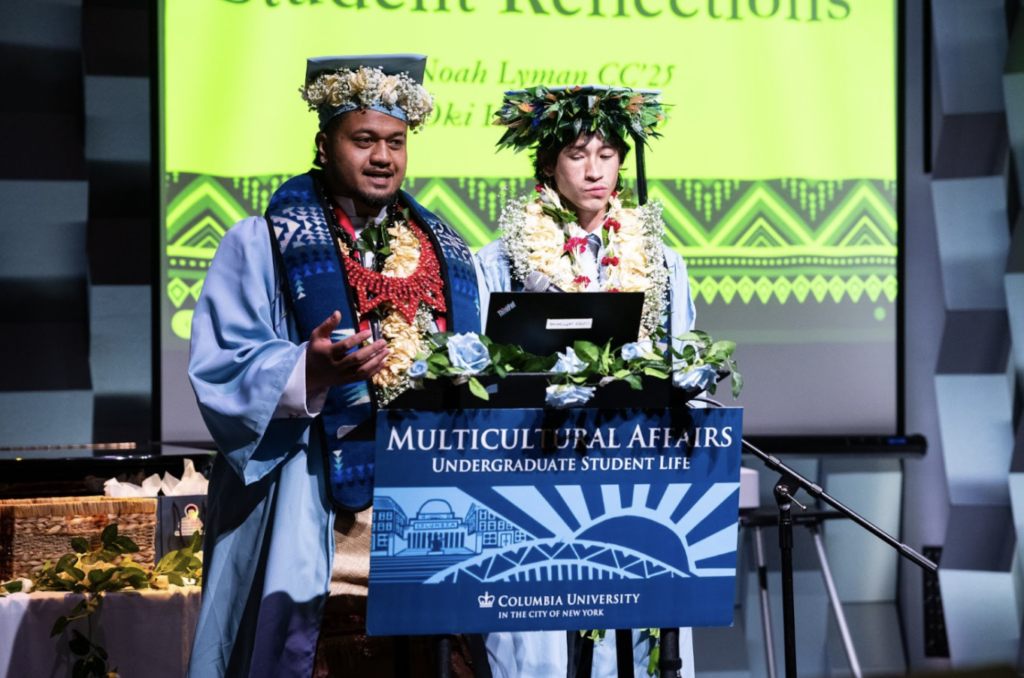
15. Lastly, what does being Pacific Islander mean to you and how has that shaped who you are today?
Being a Pacific Islander means carrying my ancestors with me in all that I do. It means honoring a lineage of love, resilience, and collective strength that has shaped my values and grounded my purpose. It’s in the way I show up—with humility, with heart, and with an unshakeable commitment to community. My identity has taught me that leadership isn’t about standing out—it’s about standing up for others, making space where there is none, and holding the door open for those still finding their way. Being a Pacific Islander is not just who I am–it’s the foundation of how I move through the world.
Okilani’s journey is a influential reminder that we, as Pacific people, not only deserve to be in rooms where we’ve long been absent, we belong there. His presence at Columbia, an Ivy League institution, is more than a personal milestone; it’s a collective victory. It challenges the narrative of what’s “normal” and redefines what’s possible for our community. Higher education at this level isn’t reserved for a select few, it’s within reach for all of us. When one of us breaks through, it’s not just a win, it’s proof. Proof that our ancestors’ prayers still echo, that our culture carries power, and that our stories matter. Okilani’s story is special because it tells every young Pacific Islander watching: If he can do it, so can you. And not only can you… you were always meant to.
Photos Supplied
